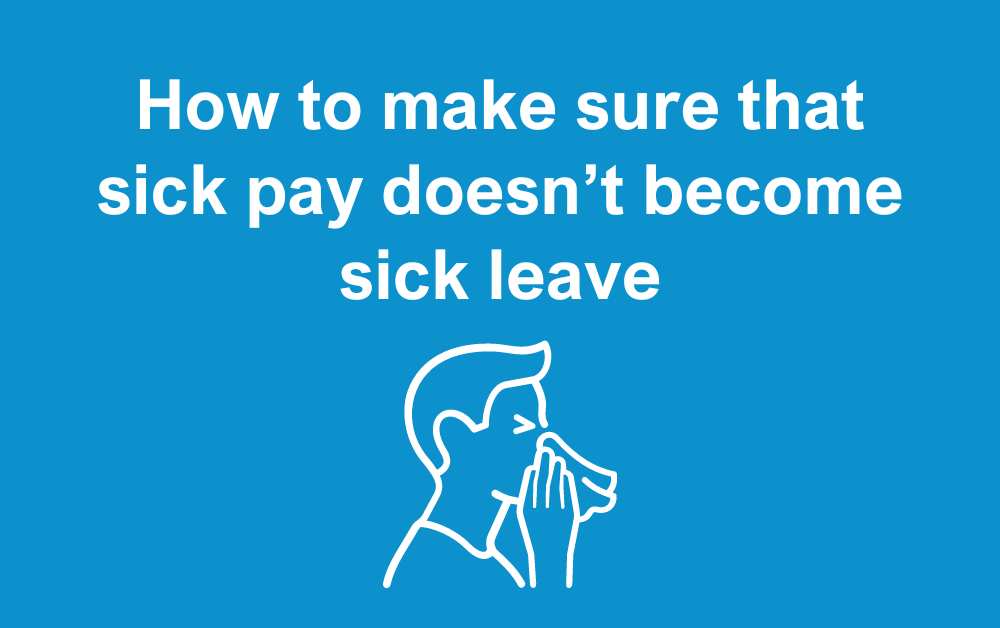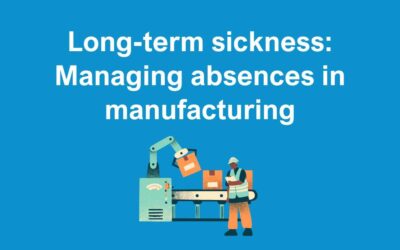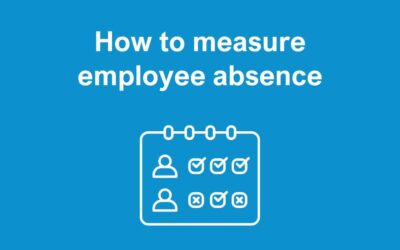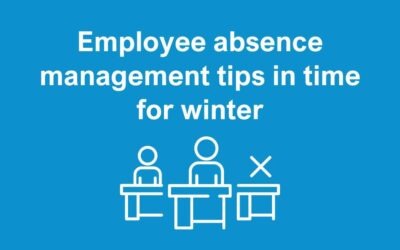People get ill all of the time but you need to make sure your staff aren’t abusing any sick pay benefits you offer.
According to the latest research, the average UK worker is absent from work for 8.4 days a year, costing businesses around £12 billion, which works out around £600 per employee per year. The absence of your workers not only cost your business money but also negatively impacts productivity, so it’s understandable that you want to take action to deal with it
Changing the mindset of your staff
Your policy may require staff to produce a sick note from their GP if they are absent for a certain number of days.
Part of the problem regarding absence is that some workers tend to treat sick days like leave. Whilst many companies offer sick pay as part of the ‘employee package’ for a number of days before statutory sick pay kicks in, this doesn’t mean that staff are entitled to take it, as they are with annual leave. It’s a completely different thing and you need to make sure your employees understand this.
Dealing with sickness in the workplace
The best way to ensure that employees aren’t treating sick days like annual leave is to enforce policies and procedures in the workplace. If your employees know that absence will be noticed, monitored and investigated, they are less likely to abuse their sick pay.
Implementing procedures
A great way to make sure that sick pay doesn’t become sick leave is by implementing procedures that you and your staff must take if they are off sick. This could involve them having to phone in at a given time on each day of their absence and completing a return to work interview once their period of sickness is over. Carrying out a return to work interview will help you establish the grounds of their sickness and ensure there are no underlying issues that could affect their ability to work.
Creating policies
In addition to implementing procedures, it is important to create policies surrounding sickness and absence so employees cannot say that they weren’t informed of the way it works. Creating a sickness in the workplace policy will ensure that employees fully understand what is expected of them. It should also encourage attendance and outline your procedures for monitoring absence.
Of course, not everyone will abuse your sick pay scheme – most people are genuinely ill when they take days of work. This is why it is essential that you inform employees of the support you provide to those recovering from illnesses, such as phased return, counselling, flexible working and occupational health. The more support you provide, the less likely staff are to take days off unnecessarily and the greater chance you have of facilitating staff retention.
Taking action
If you have reason to believe that a member of staff is using their sick days and sick pay, in the same way, they would annual leave, you will need to investigate them. It is important that you follow set procedures and ensure that the action you take is in line with the ACAS Code of Practice.
This will start with measuring individual absence so you can determine how much time is lost, where it occurs most and how often the individual is absent. If your findings appear to be different to what you would expect of an employee, it is best to either hold a back to work interview or meeting to find out the reasons behind the absence. Remember that you are within your right as an employer to seek medical opinions and ask to see a sick note from the employee’s GP.
Conclusion
High levels of unauthorised absence can cause lost or delayed production, along with low morale and a reduced standard of service. It is therefore extremely important that you nip any bad habits in the bud and ensure that your employees aren’t treating their sick pay benefits as a reason to take sick leave. Measuring absence and creating policies will help employees understand what is expected of them also help managers to deal with such issues in a fair and consistent way.







